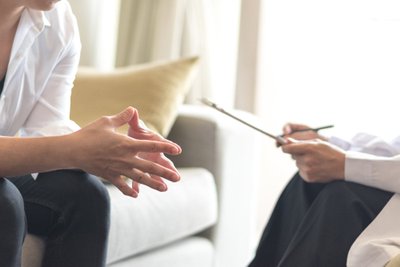How to prepare?
Even though the biggest holidays give us the most wonderful of emotions, when they are over, numerous people all around the world have to fight sad thoughts and inner unease. However, according to psychologist Asta Blande, such a condition not necessary falls under the definition of post-holiday blues. However, sadness and negative emotions may hide other things still.
“After the holidays, we often encounter not depression, which is a psychological disorder that can strike at various times due to certain unfavorable circumstances, but with a bad mood because we lack the emotions, rhythm, and good spirits that were present during the festive period,” she said.
The psychologist explained how such mood swings might manifest.
“Often people get contradictory feelings and start eating away at themselves – they feel like they want to do something but are unsure if they have enough energy and lack the initiative for change,” she added.

According to her, almost everyone can feel like this at some point in their lives.
“I think that no one is safe from the so-called post-holiday blues, and the vulnerability depends on the psychological resilience. If we are used to taking responsibility for what we want or what we are doing, this condition will not last long because we will start making plans, how to help ourselves. Those who wait for something to happen, for someone else to solve their issues, may experience this shroud of negative emotions for longer,” Blande added.
Fortunately, it is possible to prepare for such challenges.
“By improving our psychological resilience, we may be well-equipped to deal with emotional hardships in various contexts, thus we have to look for inner strengths, have a realistically positive outlook on the environment, constantly improve skills, and find ways in ourselves or the environment to help weather the storms of life, and always accept that not everything is under control. It is worth being consistent and precise in areas where effort brings results,” the psychologist suggested.

How to deal with emotional problems
They say there is always a way out. This popular phrase can also be applied when talking about emotional issues arising after the holidays because there actually are ways to help yourself and beat such a state. Blande gave some advice.
“First of all, you should not forget to take care of your body: proper diet and daily physical activity for at least 90 minutes is already a huge investment towards pleasant emotions,” she said.
The next steps are equally important.
“It is imperative to search for answers what is happening with the emotional world: one can do it themselves – by analyzing the situation or talking to people who he/she trusts,” she continued.
Self-help may also come from the actions of others.
“Take a piece of paper and write down the kind of change you want and what a self-help plan could look like. And then, take small and manageable steps towards helping yourself,” Blande suggested.

Pay attention to yourself and your emotions
Despite several ways of getting rid of negative emotions that manifest after the holidays, people should remember that professional help is also important and useful. Blande explained when you should consider consulting a specialist.
“Watch yourself and note the duration of depressive emotions. If after two weeks you don’t notice even the smallest of changes, if the mood remains gloomy or gets even gloomier, and the negative thoughts prevent from going about your daily life, you should seek help. At first, you can try emotional support helplines, and later, if the situation remains the same, see a psychologist,” she insisted.

Blande stressed that the issue might become much worse if not dealt with in time: “The post-holiday blues may turn into full-scale depression, which really takes a toll on the quality of life and requires a considerable amount of resources to beat.”
Do not forget that emotional health is just as important as physical well-being. Find time for yourself, analyse your thoughts, and, if needed, seek help to improve your life and relations with other people.

